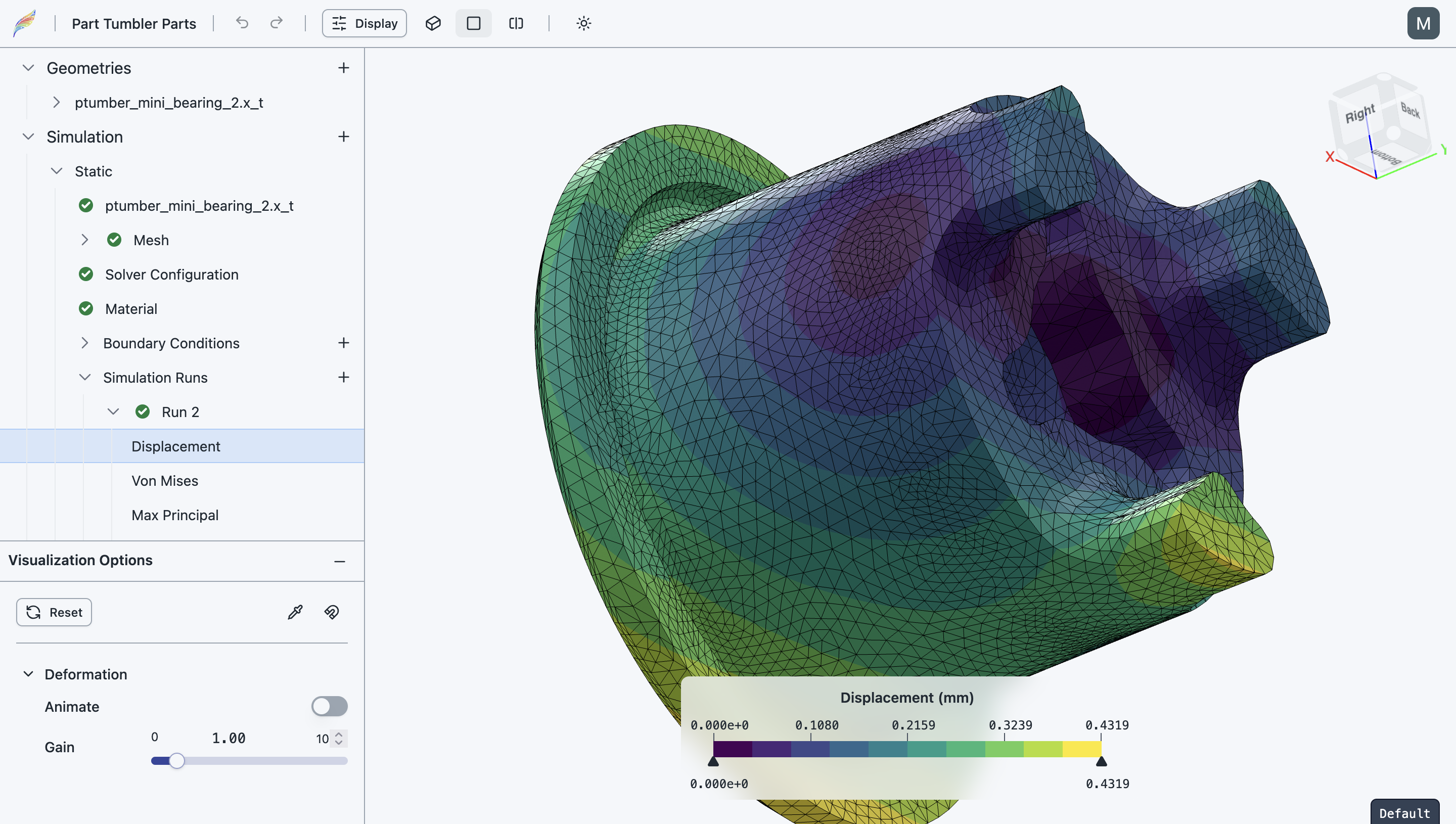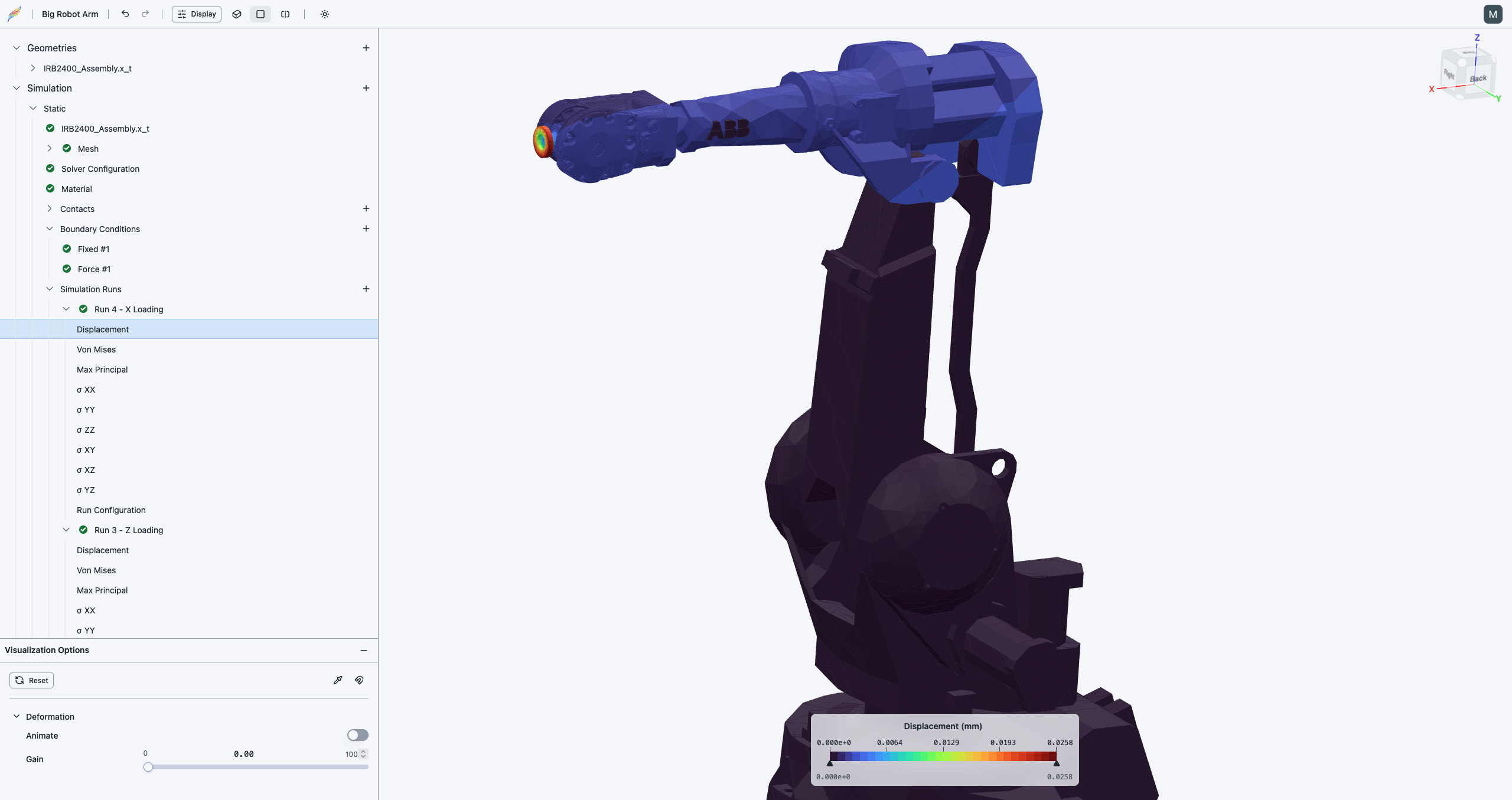Why Feather?
- • Runs on Mac, Windows, and Linux
- • Clean, intuitive UI
- • Integrated meshing, solving and post-processing, all in the cloud
- • Simple, usage-based pricing

Built for Engineers.
Beautiful by Design.

Resources & Learning
Explore tutorials to get the most out of Feather.
Pricing
No sales calls. No yearly contracts.
Just sign up and go.
FREE
Try Feather for free.
- All analysis types
- 10 unrestricted simulations
- Non-commercial use
INDIVIDUAL
For individuals getting started.
- Linear Elasticity and Thermal Analysis
- Modal Analysis, Harmonic Response, and Buckling
- All simulations are always private
- Non-commercial use
Frequently Asked Questions
Feather supports linear static, thermostatic, transient thermal, modal, harmonic, and buckling analysis for both single parts and assemblies. All physics types are available on all plans.
A compute credit is our unit of measurement for computational resources. 1 compute credit equals 1 minute of solver time on standard GPUs (billed by the second). Pre-processing (meshing) and post-processing (results viewing) do not consume credits - you only pay for actual computation time.
Thanks to GPU acceleration, simulations run much faster than traditional CPU solvers, so you'll use fewer credits than you might expect. Here are some real examples: • Large static analysis (940k TET10 elements): 2m 20s = 2.33 credits • Modal analysis (650k TET10 elements, 10 modes): 3m = 3.00 credits • Quick iteration (70k TET10 elements): 20s = 0.33 credits
Each plan includes a monthly allocation of compute credits. If you use all your included credits, you can continue running simulations - additional usage is automatically billed at your plan's per-credit rate with no interruption to your work. Unused credits don't roll over to the next month.
Commercial use is available with our Professional and Business plans. The Individual plan is limited to non-commercial use only, making it perfect for students, researchers, and hobbyists.
Yes, you can upgrade or downgrade your plan at any time. Changes take effect at the start of your next billing cycle, and any unused compute credits don't roll over.
Ready to Try Feather?
Feather provides lightweight solutions to heavyweight problems.


